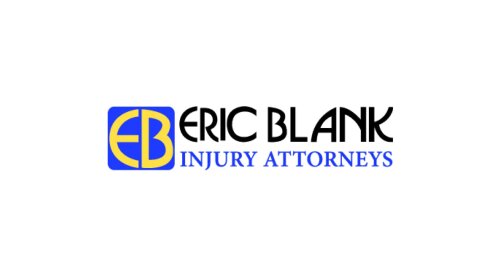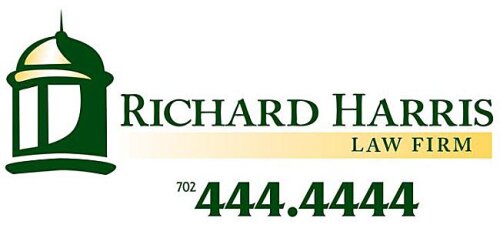Best Reinsurance Lawyers in Las Vegas
Share your needs with us, get contacted by law firms.
Free. Takes 2 min.
List of the best lawyers in Las Vegas, United States
About Reinsurance Law in Las Vegas, United States
Reinsurance is the insurance that insurers buy to protect themselves from large losses or to manage capital and risk. In Las Vegas, as in the rest of Nevada, reinsurance transactions are shaped by a mix of private contract law, state insurance regulation, and industry practice. Many reinsurance contracts are negotiated between insurers or between insurers and reinsurers in multiple domiciles, and they commonly include treaty provisions, facultative placements, retrocession arrangements, arbitration clauses, and detailed collateral and credit-for-reinsurance provisions.
Because Nevada is a state-regulated insurance market, the Nevada Division of Insurance plays a central role in oversight - including licensing, financial regulation, and enforcement. Nevada also follows many national model laws and guidance issued by the National Association of Insurance Commissioners - which affect how insurers and reinsurers account for reinsurance, provide collateral, and obtain regulatory approval for certain arrangements. Reinsurance disputes often involve technical issues - coverage interpretation, allocation, credit for reinsurance, insolvency of a reinsurer, and remedies under the contract - and are frequently resolved through arbitration or litigation depending on the dispute clause in the treaty or facultative slip.
Why You May Need a Lawyer
Reinsurance law is specialized and can raise complex commercial, regulatory, and procedural issues. You may need a lawyer if you are facing any of the following situations:
- A dispute over coverage, limits, or allocation under a reinsurance treaty or facultative certificate. Reinsurance contracts are often detailed and require interpretation of technical language and pro rata or excess-of-loss calculations.
- A reinsurer is late, refuses to pay, or denies a valid claim. Recovering reinsurance proceeds can require litigation, arbitration, or regulatory intervention.
- A reinsurer is insolvent or at risk of insolvency. Insolvency raises priority, collateral, and claims handling issues and may involve multiple jurisdictions and reinsurer estates.
- Questions about credit for reinsurance or collateral requirements - for example when dealing with non-US reinsurers or when seeking to reduce required collateral under state rules.
- Regulatory compliance matters, such as licensing, reporting, and filings with the Nevada Division of Insurance or with other state regulators where an insurer or reinsurer does business.
- Negotiating, drafting, or reviewing reinsurance agreements, retrocession contracts, or arbitration clauses to protect your financial and regulatory interests.
- Cross-border reinsurance arrangements that raise conflict-of-law, enforceability, and jurisdictional questions.
Local Laws Overview
Nevada regulates insurance and reinsurance primarily through state statutes, regulations, and the Nevada Division of Insurance. Key local law aspects relevant to reinsurance include licensing and registration of insurers and reinsurers, financial solvency oversight, and rules that determine when a ceding insurer may take credit for reinsurance ceded to another company. Nevada generally follows nationally accepted regulatory frameworks and model laws developed by the National Association of Insurance Commissioners. These model laws address credit for reinsurance, collateral requirements, transfer of obligations, and rehabilitation or liquidation procedures.
Reinsurance arrangements in Nevada are also affected by contract law - including choice-of-law and forum-selection clauses that parties commonly use in treaties and facultative slips. Arbitration clauses are typical and often specify arbitration rules and seats that may be located outside Nevada. If arbitration is selected, local courts in Nevada will generally enforce arbitral awards under the Federal Arbitration Act and the Nevada Uniform Arbitration Act, subject to narrow judicial review grounds.
In insolvency scenarios, Nevada follows statutory rehabilitation and liquidation procedures similar to other states, and coordination with the reinsurer s home regulator or receiver can be decisive for ceded claim recovery and claims handling. Tax and accounting rules - while not strictly legal - also influence how reinsurance is structured and reported in Nevada. Because reinsurance often spans multiple jurisdictions, parties must be attentive to multistate regulatory requirements and potential conflicts between the laws of Nevada and other domiciles.
Frequently Asked Questions
What exactly is reinsurance and how does it differ from regular insurance?
Reinsurance is insurance for insurers. Primary insurers cede part of their risk portfolio to reinsurers to limit exposure, stabilize losses, and improve capital management. Unlike primary insurance sold to individuals or businesses, reinsurance is a contractual arrangement between insurers and reinsurers. The mechanics, pricing, and remedies are often more complex and tailored to large portfolios or catastrophic exposures.
What are the main types of reinsurance contracts I should know about?
The two main forms are treaty reinsurance and facultative reinsurance. Treaty reinsurance covers a defined book of business under pre-agreed terms and is automatic, while facultative reinsurance is arranged on a case-by-case basis for specific risks. There are also proportional agreements - where premiums and losses are shared in agreed proportions - and non-proportional agreements such as excess-of-loss, which protect against losses above a retention level.
How do collateral and credit-for-reinsurance rules affect my company in Nevada?
Collateral rules determine whether and how a ceding insurer must hold security to protect its policyholders if the reinsurer fails to pay. Credit-for-reinsurance laws govern when a ceding company may recognize the ceded reinsurance as an asset or offset on its financial statements. Nevada has adopted standards that track NAIC model laws, but the specific collateral requirements can vary based on the reinsurer s licensing, financial strength, and domicile. A lawyer can help assess whether you may claim credit or seek reductions in collateral demand.
What should I do if a reinsurer refuses to pay a valid claim?
First, preserve all communications, claim notices, contracts, and accounting entries. Review the reinsurance contract language - including notice and proof provisions - and any arbitration clause or dispute resolution mechanism. Consider sending a demand letter through counsel, and evaluate whether the dispute falls under arbitration or should be litigated. If the reinsurer s conduct suggests financial distress, notify regulators and assess options related to collateral or guarantees. A qualified reinsurance lawyer can advise on strategy and timing.
Are reinsurance disputes typically resolved in Nevada courts?
Not always. Many reinsurance agreements include arbitration or specify a forum outside Nevada. Where arbitration is chosen, awards are generally enforceable in Nevada under federal and state arbitration statutes, but the chosen seat and governing law matter significantly. When disputes are litigated in court, Nevada courts will handle matters if Nevada is the agreed forum or if a connection to the state exists, but cross-border disputes can require coordination with other jurisdictions.
What happens if a reinsurer becomes insolvent?
Insolvency complicates recovery of reinsurance proceeds. The ceding insurer may need to file a claim with the reinsurer s liquidator or receiver, and state insolvency law will govern the distribution of assets. Nevada regulators may coordinate with the reinsurer s domiciliary regulator. Collateral held to secure reinsurance obligations becomes critically important in insolvency scenarios. Legal action may be limited by priority rules and the insolvency process, so early engagement of counsel and regulators is essential.
How do arbitration clauses affect my rights in a reinsurance dispute?
Arbitration clauses typically require parties to resolve disputes outside of court, under a specific set of arbitration rules and at a specified seat. Arbitration can be faster and more confidential than litigation, but it limits judicial review and can affect discovery scope and remedies. Before entering into a reinsurance contract, consider the arbitration clause carefully - including choice of law, seat, number of arbitrators, and whether interim relief is available in local courts.
Can an insurer in Nevada reduce collateral requirements for a strong reinsurer?
Possibly. Nevada allows recognition of credit for reinsurance under standards that consider the reinsurer s financial strength, licensing status, and regulatory oversight. Where the reinsurer is licensed in a qualified jurisdiction or provides acceptable security, a ceding insurer may be able to reduce collateral. The process typically requires documentation and sometimes regulatory approval, so legal and regulatory advice helps present a strong case to regulators.
How long do I have to bring a reinsurance claim in Nevada?
Statute of limitations and contractual time bars vary depending on the type of claim, the governing law in the contract, and the contract s own notice or suit limitation clauses. Some reinsurance treaties contain short notice or suit limitation periods, while state law may prescribe specific statutes of limitation for contract or tort claims. It is important to review applicable provisions promptly and consult counsel to avoid losing rights by delay.
How do I choose the right lawyer for a reinsurance matter?
Look for lawyers or firms with specific experience in reinsurance, insurance regulatory matters, and dispute resolution such as arbitration and cross-border litigation. Check for familiarity with Nevada insurance regulation, insolvency proceedings, and the particular market involved - for example London or Bermuda markets if the reinsurer is domiciled there. Ask about prior reinsurance cases, outcomes, fee structures, and how they handle coordination with regulators and foreign counsel.
Additional Resources
Several organizations and agencies provide useful information and oversight for reinsurance matters:
- Nevada Division of Insurance - for licensing, consumer inquiries, and regulatory standards in Nevada.
- National Association of Insurance Commissioners - for model laws, bulletins, and best practices that many states follow.
- State insurance guaranty associations - which handle certain insolvency-related issues for policyholders and can be relevant when talking about ceded risks.
- Arbitration institutions commonly used in reinsurance disputes - for rules and procedural guidance.
- Professional trade groups and legal sections - such as insurance law sections of the American Bar Association and industry associations that offer guidance, continuing education, and publications on reinsurance topics.
Next Steps
If you need legal assistance with a reinsurance matter in Las Vegas, consider the following steps:
- Gather your documents: reinsurance treaties, facultative slips, correspondence, claims notices, payment records, regulatory filings, financial statements, and any internal analyses related to the dispute or transaction.
- Contact a lawyer with reinsurance experience and Nevada regulatory knowledge. Prepare to describe the facts, the contractual language at issue, and any regulatory developments or insolvency concerns.
- Ask the lawyer about their approach - negotiation, regulatory engagement, arbitration, or litigation - and get an engagement letter that explains scope, fees, and expected milestones.
- If the matter is urgent - for example a threatened insolvency or imminent limitation deadline - notify counsel immediately so protective steps can be taken, such as preservation letters, provisional relief applications, or regulatory notifications.
- Coordinate with relevant internal stakeholders - compliance, finance, and claims - and, if appropriate, with external advisors like auditors or actuaries who can help quantify exposures and support legal strategy.
Taking prompt, informed action and working with counsel who understand both reinsurance markets and Nevada regulatory practice will help you protect your rights and pursue the most effective resolution.
Lawzana helps you find the best lawyers and law firms in Las Vegas through a curated and pre-screened list of qualified legal professionals. Our platform offers rankings and detailed profiles of attorneys and law firms, allowing you to compare based on practice areas, including Reinsurance, experience, and client feedback.
Each profile includes a description of the firm's areas of practice, client reviews, team members and partners, year of establishment, spoken languages, office locations, contact information, social media presence, and any published articles or resources. Most firms on our platform speak English and are experienced in both local and international legal matters.
Get a quote from top-rated law firms in Las Vegas, United States — quickly, securely, and without unnecessary hassle.
Disclaimer:
The information provided on this page is for general informational purposes only and does not constitute legal advice. While we strive to ensure the accuracy and relevance of the content, legal information may change over time, and interpretations of the law can vary. You should always consult with a qualified legal professional for advice specific to your situation.
We disclaim all liability for actions taken or not taken based on the content of this page. If you believe any information is incorrect or outdated, please contact us, and we will review and update it where appropriate.















